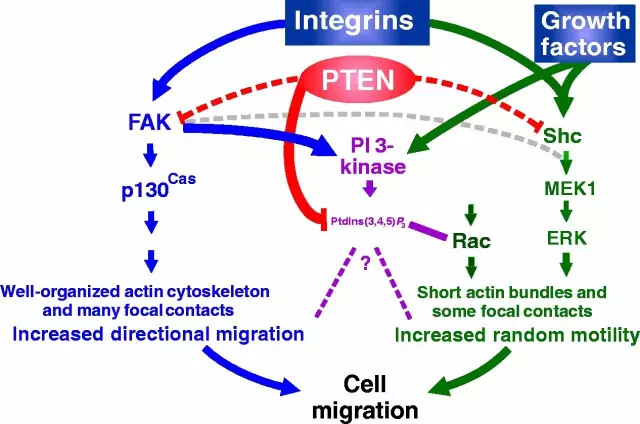Nature: A new gene that has been found to inhibit multiple cancers
Drugs for the PTEN-related pathway are being developed, but tumors will soon become resistant to these drugs. Therefore, finding drugs that act on other tumor suppressor pathways at the same time will help tumor treatment. We hope that the genes found in this study will provide some ideas for the development of treatments for prostate cancer and other cancers.
Prostate cancer is the second most common cancer in British men (the sixth most common cancer in Chinese men). About 47,000 people are diagnosed with prostate cancer each year in the UK. More than half of prostate cancer patients have mutations or deletions of the PTEN gene, and some brain tumors and endometrial cancer patients have similar genetic variants. PTEN is an important pathway regulating cell growth and division. However, few people know which other genes or other pathways synergize with PTEN to inhibit tumor growth.

In this study, the researchers tested a new method in mice. A part of the Pten gene of the mouse is converted into a transposon sequence which is inactivated when it is present in the Pten gene. However, carrying a Pten transposon will randomly fall off the entire genome and destroy the gene inserted by it. Thus, when it is inserted into a tumor suppressor gene that cooperates with Pten, the tumor grows.
Dr. Jorge de la Rosa of the Sanger Institute in the United Kingdom said that we have a new way of coupling "transposon activation with Pten inactivation", that is, no matter which genes are inserted into the transposon, it will directly lead to Pten. Inactivated. By analyzing which genes are destroyed during tumor growth, we can identify genes that work with Pten to inhibit tumor growth. "Science" special issue: four aspects of the most advanced cancer treatment
The researchers analyzed the genomes of 278 prostate, breast, and skin tumors from mice and found hundreds of genes that work synergistically with PTEN, which may have a tumor suppressor effect. Then, using the human prostate cancer cell line and database, the five most promising genes were selected.

Juan Cadi anos, a medical oncologist from Spain, said that for the first time, we have conducted a special study on the synergistic genes of PTEN in a number of cancers. We found that inactivation of PTEN and any of the five candidate genes, human cells drive cell cancer. We also found that the low expression levels of these five genes in human prostate cancer samples mean that these gene-related signaling pathways are critical for tumor suppression.
Lose Weight Plant Extract,Poria Extract,Seaweed Extract,Codonopsis Pilosula Extract
Fufeng Sinuote Biotechnology Co.,Ltd. , https://www.sntextract.com
